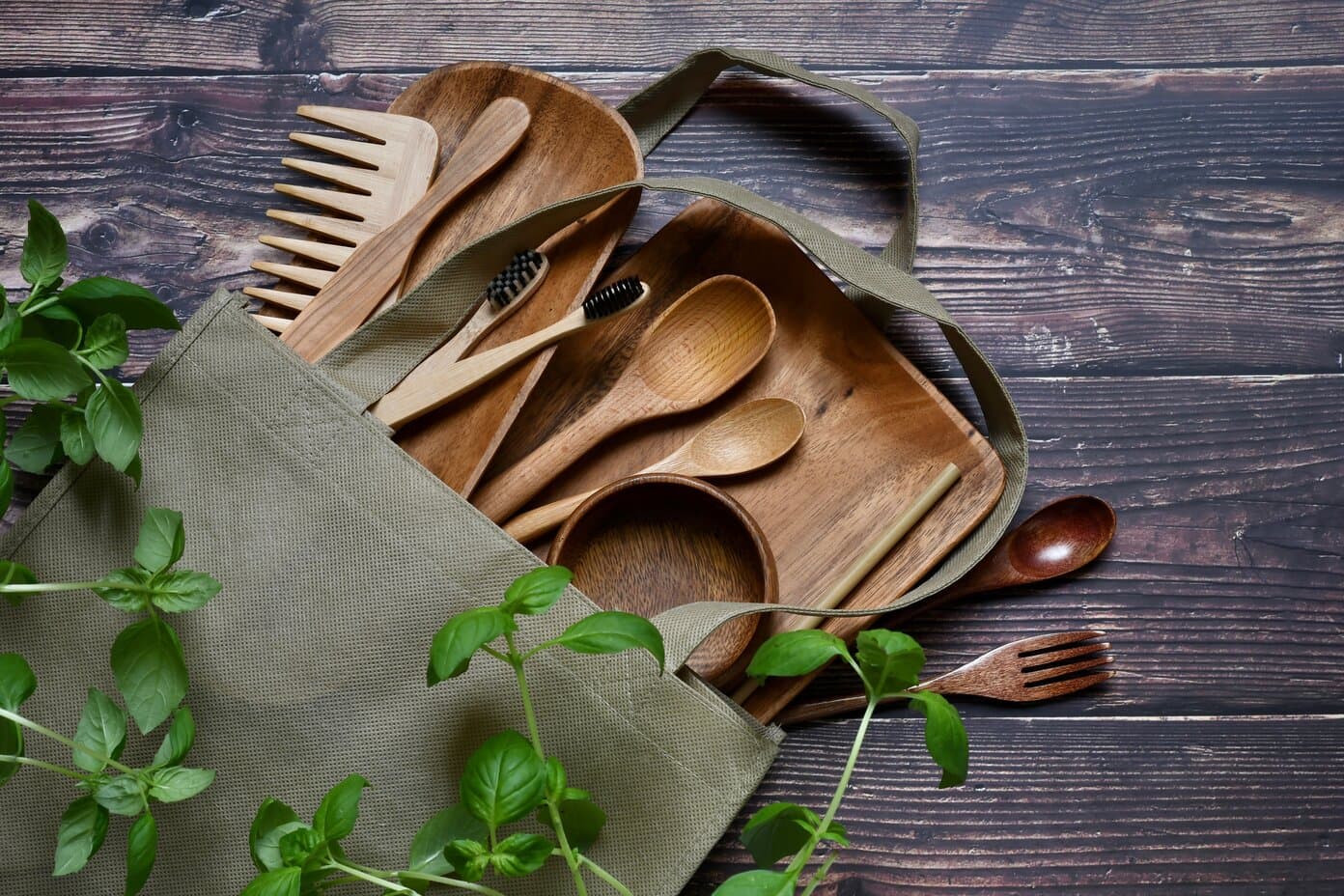- Authors

- Author
- Author
- Name
- Zuzana Slobodova
- Published on
10 Interesting Facts About Bamboo

In the sustainable environment, we see that many things are made from bamboo. I have also mentioned numerous bamboo products in my other blog posts. Why has bamboo become so popular, and is it genuinely aiding us in becoming more sustainable? Here are some interesting facts about bamboo that you might not know.
Renewable Resource
Reason number one for loving bamboo products is that bamboo as a plant is naturally very sustainable. Unlike traditional timber sources, bamboo doesn't require replanting after harvesting. The root system remains intact, and new shoots emerge from the existing rhizome network, making bamboo a self-renewing and sustainable resource.
Versatility
I think we all saw videos of two guys building amazing buildings only out of mud and bamboo on YouTube. The versatility of bamboo is outstanding. With over 1,000 documented uses, it spans a vast array of applications. From construction and furniture-making to textiles, paper production, and even as a source of food, bamboo has proved its adaptability across cultures and industries.
Rapid Growth
Bamboo's remarkable growth rate is a testament to its natural efficiency. Some bamboo species can achieve an astonishing growth of up to 3 feet (1 meter) in just 24 hours under optimal conditions! This rapid growth is attributed to its unique underground rhizome system, which sends up new shoots yearly.
Natural Habitat
Bamboo's global presence is expansive, with species on nearly every continent. Bamboo is able to thrive in a diverse range of climates, from tropical rainforests to temperate and mountainous regions, underscoring its adaptability and resilience.
Carbon Sequestration
If the fact of renewable resources didn’t make you love bamboo, this fact will, because bamboo's role in mitigating climate change is noteworthy. Through the process of photosynthesis, bamboo absorbs carbon dioxide from the atmosphere and releases oxygen, contributing to carbon sequestration and making it an eco-friendly ally in the fight against global warming!
Nutritional Value
Bamboo is not only beneficial for products and buildings but is also a good source of food not just for animals but for people as well. Bamboo shoots are a culinary delicacy in many Asian cuisines. They offer not only a unique taste but also nutritional benefits. Bamboo shoots are a low-calorie source of dietary fiber, vitamins, and minerals, contributing to a balanced diet.
Anti-Bacterial Properties
Is using bamboo for making utensils or toothbrushes we use daily truly safe? Well, certain bamboo species possess natural antimicrobial agents, rendering them resistant to pests, fungi, and bacteria. This innate resilience eliminates the need for chemical pesticides, contributing to its reputation as an environmentally friendly material!
Water Efficiency
Bamboo is remarkably water-efficient. Its ability to thrive with minimal water requirements makes it a resilient and sustainable crop, particularly in regions prone to water scarcity. This way even when we use and grow a lot of bamboo we don’t need to be worried about another disaster like the cotton production caused, which I’m explaining in my older blog post.
Bamboo Charcoal
Bamboo's applications extend even to air and water purification. Bamboo charcoal, derived from bamboo through a carbonization process, possesses natural odor-absorbing properties. It's used in air purifiers, water filtration systems, and personal care products.
Habitat for Wildlife
And last but not least bamboo forests provide vital habitats for various wildlife species. Birds, insects, mammals, and even endangered animals find refuge in these lush environments, contributing to local biodiversity and ecosystem health. My favorite animal is a red panda whose main source of food is bamboo, and that is another reason why I personally love it.
Summary
The multifaceted nature of bamboo, from its rapid growth and numerous uses to its ecological and cultural significance, makes it a symbol of sustainability, resilience, and the potential for positive change in our relationship with the environment. Next time you will be choosing between plastic and bamboo products, remember these interesting facts about why you should choose bamboo!